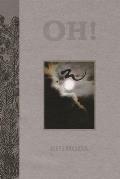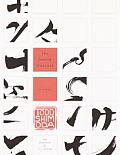
I didn't really want to weigh in on the debate about how digital books and the new wave of electronic readers like Amazon's Kindle (I know, both names are not to be mentioned at Powell's!) will affect the future of pen-and-ink books, or just plain books. I didn't want to bring it up mainly because the future of books looks fine to me, so I'm not worried that books will be going away. I have lots of other things to worry about, but that's for another blog.
I want books to be around for a long time. I love reading them and writing them. Growing up, I spent many happy hours in libraries, perusing the aisles of fiction, looking for my next adventure. In fifth and sixth grade I volunteered to help shelve books and repair bindings at the school library. I learned to appreciate the physicality of a book: the cover protecting the sheaved story inside, the stitching and glue holding the pages, the comforting smell of the paper and ink. There's a sheer tactile pleasure of flipping through the pages, touching the paper, feeling its heft.
A book says something. Not just the words themselves, but as an individual manifestation of our ability to create and present an artistic vision. I write books for many reasons, but one of them is to actually hold the book, see it on my bookshelf, in libraries and bookstores. And books like Oh! with art looks best on a printed page (see image). And what about readings? You can't sign a digital book.
 Because a book is so physically different from a digital book, I don't believe the latter will ever entirely replace the former. I have to admit I have an eReader installed on my Palm PDA and I've purchased three digital books, including one of my novel The Fourth Treasure. And I've tried the latest generation of digital book devices. I don't enjoy reading as much on a device as I do with a book, but I have to admit it's a handy way to carry around a lot of text.
Because a book is so physically different from a digital book, I don't believe the latter will ever entirely replace the former. I have to admit I have an eReader installed on my Palm PDA and I've purchased three digital books, including one of my novel The Fourth Treasure. And I've tried the latest generation of digital book devices. I don't enjoy reading as much on a device as I do with a book, but I have to admit it's a handy way to carry around a lot of text.
Another reason to be optimistic about books is that other media have survived when new technologies changed the game. Live theater survived when movies brought performance to the masses. Movies survived when television was invented. Live music survived when recordings were invented, and reinvented. With digital books, long-term storage and readability are problems to be resolved.
On the other hand, some books may have inherent advantages in digital form, dictionaries and encyclopedias for example. I have a dictionary and a thesaurus within easy reach on my desk, but I rarely use them. For some reason, it's easier to use an online dictionary or search engine to look up words for spelling, synonyms, or meanings. Online I can check several dictionaries if I want more nuance. Plus I don't have to carry them if I want to go to a coffee shop to write. Do you remember those quickly out-of-date thousand dollar sets of encyclopedias your parents used to buy?
I'm sure the debate will go on, but I'm confident books will be around and I've had my say. Thanks for reading (books)!